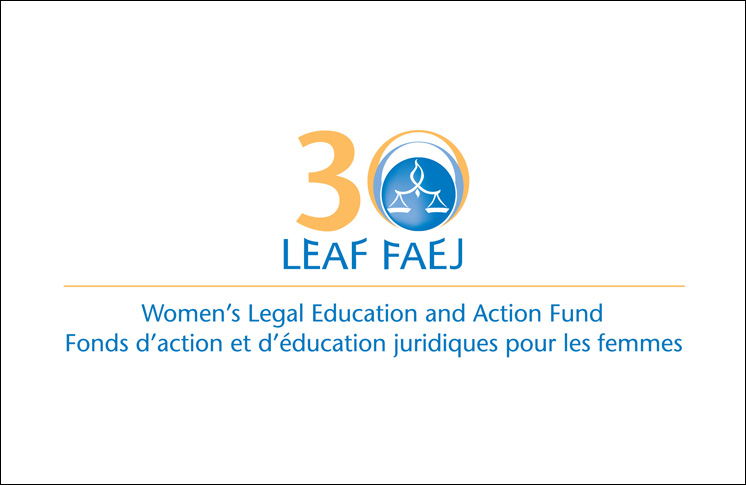
June 29 2015 – The Legal Strategy Coalition on Violence Against Indigenous Women (LSC), a national coalition of advocacy groups, has multiple concerns with the RCMP “Missing and Murdered Aboriginal Women: 2015 Update to the RCMP’s 2014 Operational Overview.
Key LSC criticisms of the 2015 RCMP Update include: (1) the suggestion that the issue of Missing and Murdered Indigenous Women is solely one of familial violence; (2) the failure of the RCMP to take responsibility for their own role in the issue; and (3) the RCMP’s use of a limited data set in preparing the 2015 Update. The LSC’s detailed review of the Update is available here.
1. The issue of Missing and Murdered Indigenous Women is not just an issue of familial violence
The Update picks its data selectively, relying solely on RCMP statistics from 2013 and 2014, and noting that the RCMP polices only approximately 20% of the Canadian population. The Update abandons the ground-breaking use of statistics from 300 police jurisdictions across Canada which had been adopted for the 2014 Overview.
“The Update defines the issue of Missing and Murdered Indigenous Women narrowly within the framework of familial violence, making it an ‘Aboriginal problem’ instead of recognizing that it is a Canadian problem rooted in racism and sexism. The Update thus ignores the finding in the 2014 Overview that Indigenous women are more likely to be killed by a stranger than non-Indigenous women,” notes LEAF Legal Director Kim Stanton.
Craig Benjamin of Amnesty International states: “Domestic violence is a critical issue for all women, Indigenous and non-Indigenous alike. But it’s crucial that we not ignore the distinct patterns of violence facing Indigenous women, or the pervasiveness of this violence, whether in the home or on the streets of Canadian cities.”
“The RCMP’s decision to arbitrarily frame the issues exclusively in terms of domestic violence obscures the context of colonial violence that Indigenous people must endure, as recently documented by the Truth and Reconciliation Commission on residential schools,” asserts Julie Kaye, Assistant Professor of Sociology at King’s University and Research Advisor for Aboriginal Commission on Human Rights & Justice in Alberta.
2. The RCMP needs to take responsibility for its own role
Without providing reasons, the 2015 Update concludes that RCMP investigations into cases of Missing and Murdered Indigenous Women are proceeding appropriately, with adequate resources. This self-congratulation completely overlooks key reports released since the 2014 Overview that identify failures of the RCMP and the Canadian government.
“It is alarming that the findings of RCMP failures, by the Oppal Report in 2012 and also by recent reports of international human rights bodies, were not even mentioned, let alone addressed in any detail,” observes Vancouver-based international human rights expert and Canadian Feminist Alliance for International Action (FAFIA) representative Shelagh Day.
The 2015 Update omits any consideration of the following:
- The 2014 Report of James Anaya, the Special Rapporteur on the Rights of Indigenous Peoples, The situation of indigenous peoples in Canada, that added his voice to the call for a national inquiry on Missing and Murdered Indigenous Women;
- The 2015 Report of the Inter-American Commission on Human Rights (IACHR), Missing and Murdered Indigenous Women in British Columbia, Canada, that determined that Canada is legally required to fully and effectively improve its response to the crisis of violence against Indigenous women and girls pursuant to its obligations under the Charter of the Organization of American States and the American Declaration of the Rights and Duties of Man;
- The 2015 Report of the United Nations Committee on the Elimination of Discrimination against Women (CEDAW) that found Canada has committed “grave violations” of the human rights of Indigenous women and girls due to its ongoing failure to act effectively and in a co-ordinated way to address the situation of violence against this population.
The CEDAW Committee’s Report stated that official responses to its queries showed “a lack of awareness of the persisting barriers faced by Aboriginal women, when seeking to access the justice system.” After receiving representations from both government and civil society, the CEDAW Committee concluded that the accounts from Indigenous women and their families, NGOs, and academics “were diametrically opposed to those provided by government officials and police who claimed that in responding to victims of violence and their families, they adhered to guidelines and best practices”.
“These discrepancies between what the RCMP state in their report, and what independent bodies have said, point to a crucial issue that needs to be further investigated and dealt with,” notes Christa Big Canoe, Legal Director of Aboriginal Legal Services of Toronto. “The 2015 Update continues the complete institutional failure to admit that the RCMP is part of the problem as well.”
3. Limited data set masks RCMP failures and continues to cloud the facts
The 2015 Update recommends that solutions for the issue of Missing and Murdered Indigenous Women be sought by creating a collaborative environment. However, the RCMP’s failure to seek data from other policing jurisdictions required to accurately and meaningful update its 2014 Overview reflects a failure to take meaningful and collaborative action. The LSC guide to the 2014 RCMP Overview, including an analysis of issues with the RCMP’s use of limited data sets, can be found here.
The RCMP’s inference that family violence is the crux of the matter sounds similar to the off-the-cuff remarks from Minister Valcourt in March of this year, stating that 70% of Aboriginal women are killed by Aboriginal men. At the time, RCMP Commissioner Paulson publicly stated that RCMP data support the Minister’s statement.
Despite calls to prove this claim, the RCMP did not make any supporting data public at that time. Significantly, the 2015 Update also omits to provide any data in support of Minister Valcourt’s statement. “If the evidence is there to support the Minister’s conclusion,” says Mary Eberts, a Toronto-based human rights lawyer and LSC member, “it’s only fair that the RCMP make it public, and allow us to assess its methodology and accuracy. Instead, the 2015 Update relies on sketchy RCMP data from 2013 and 2014 to claim family violence is the basis of the problem.”
“For many years, the official position was that Indigenous women were being harmed because of their ‘high risk life style’. Now, the government and RCMP are suggesting that family violence in Indigenous homes is to blame for the problem. These messages leave the erroneous impression that Indigenous people, women and men, are solely responsible for what is happening to Indigenous women. In reality, the police, including the RCMP, and the Canadian government are heavily implicated in this crisis. We look to them for action that will produce change, including a commitment to respect fully the human rights of Indigenous peoples in this country,” states Cheryl Maloney, President of Nova Scotia Native Women’s Association.
The LSC wishes to express its disappointment with the deeply flawed 2015 RCMP Update. The Update reinforces a stereotypical idea that Indigenous people are to blame for the problems of violence in their communities. The Update completely abdicates the RCMP’s own responsibility for failures to exercise due diligence in investigating and solving cases, communicating and coordinating with other police forces, and treating Indigenous women, girls and their families with respect.
This news release was endorsed by the following individual and organizational members of the Legal Strategy Coalition:
Aboriginal Commission on Human Rights & Justice
Aboriginal Legal Services Toronto (ALST)
Amnesty International Canada
B.C. Civil Liberties Association (BCCLA)
Canadian Association of Elizabeth Fry Societies (CAEFS)
Canadian Feminist Alliance for International Action (FAFIA)
Carrier Sekani Family Services
Professor Aimee Craft, Professor, Faculty of Law, University of Manitoba
Law Office of Mary Eberts
Professor Brenda Gunn, Faculty of Law, University of Manitoba
Indigenous Blacks & Mi’kmaq Initiative Schulich School of Law, Dalhousie University
Institute for the Advancement of Aboriginal Women (IAAW)
Constance MacIntosh, Associate Professor of Law; Director, Health Law Institute, Schulich School of Law, Dalhousie University
Nova Scotia Native Women’s Association (NSNWA)
Kim Pate, Sallows Chair in Human Rights, Faculty of Law, University of Saskatchewan College of Law
Pivot Legal Society, Vancouver
Union of British Columbia Indian Chiefs (UBCIC)
Women’s Legal Education and Action Fund (LEAF)
West Coast LEAF
For more information, please contact:
Cheryl Maloney, President, Nova Scotia Native Women’s Association
902-751-0077
Christa Big Canoe, Legal Director, Aboriginal Legal Services of Toronto
647-227-4392
Mary Eberts, Law Office of Mary Eberts
647-962-5117
Kim Stanton Legal Director, Women’s Legal Education and Action Fund (LEAF)
416-595-7170 x 223,
k.stanton@leaf.ca









